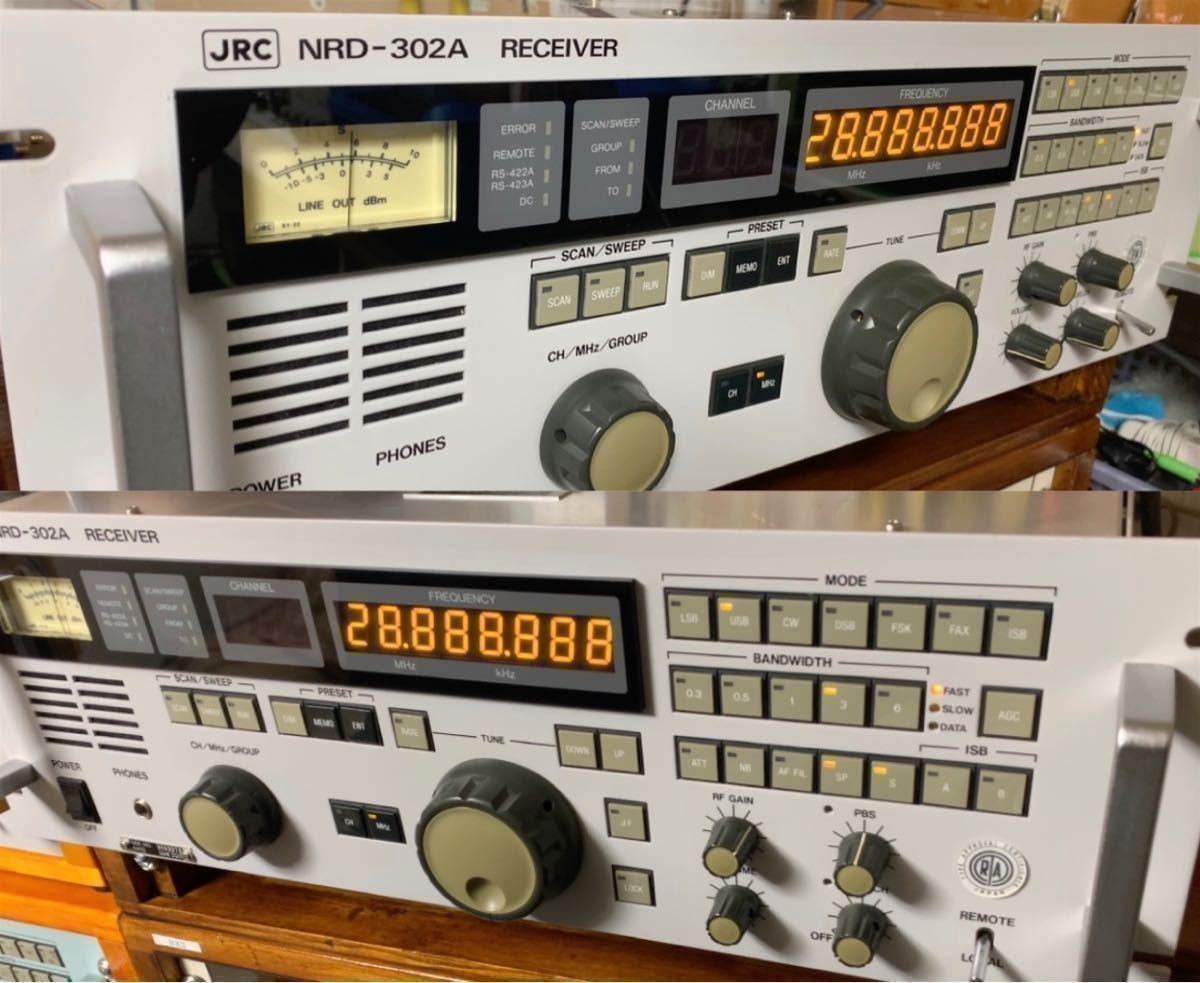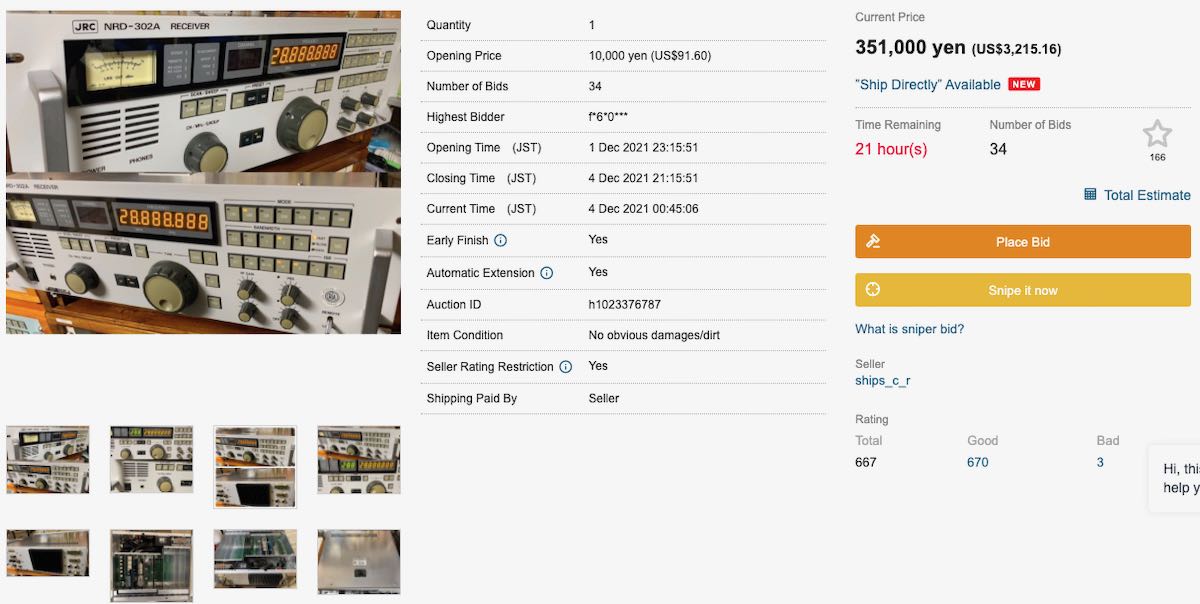 Many thanks to SWLing Post contributor, Dan Robinson, who writes:
Many thanks to SWLing Post contributor, Dan Robinson, who writes:
The seemingly un-ending stream of classic premium receivers continues at the Japan auction site known as “Buyee”:
This ultra-rare Japan Radio Company NRD-302A is expected to exceed the U.S. $5,000 mark.
As premium receiver collectors/users know, the 302A is certainly among the top rarest of the JRC professional/marine line. At the top of that line was the NRD-630, which was described by the company at the time it was being manufactured, as a “training” receiver. For some reason, though more of them were manufactured by JRC, the 302A is even more infrequently seen on the used market.
Listed as “typically unavailable” on Page 347 of the Osterman Receivers Past and Present guide, the 302A exceeds the previous 301A model in having ISB mode and a narrow 0.5 filter, with 1 Hertz tuning resolution. Previous other ultra-rare JRC sets on the Japan site included two NRD-95 receivers, both of which came in at over $5,000 U.S.
Click here to check out this auction.
What a beautiful radio! Thanks for sharing this insight with us, Dan. Very curious what this ultra rare rig will fetch!


Final price for this was a bargain, as these auctions go — about $4400 U.S. But hidden sniper bids would surely have pushed this into the $5k range which is what NRD-95 receivers went for a few months ago.
I think Dan addressed the “junk” designation in a previous article about receiver auctions on Japanese web sites. The upshot was that “junk” simply means used, in the most common application of the term.
It’s unfortunate that the Japanese sellers (non-native English speakers) are not aware of the very negative connotation of the term. As used in these auctions, “junk” normally just means that the item is used, but may be perfectly serviceable. As always though, let the buyer beware. My point is that a “junk” designation from a Japanese auction is NOT always a reason to steer clear. The Japanese tend to be very conservative in their condition ratings.
Maybe someone can help me shed more light on this – I’ve heard that the majority of Japanese people place more favour in modernity and having up to date items, whatever they may be, and giving less consideration to items and technology of the past than other cultures which perhaps may lend some reasoning behind the translation of “used” as “junk”?
I could be completely off base but I remember reading something about this some time ago.
Did you notice the (English) warning at the top of the advert?
“The description of this item includes a word “junk”.
Items considered as junk have high risk of low quality in condition or dysfunction.
Please be aware of this risk before placing your bids.”
—————–
https://buyee.jp/item/yahoo/auction/h1023376787?lang=en
21 more hosurs